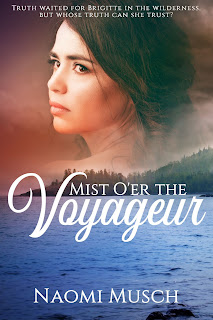I read that remark on a social media post recently. Someone was talking about writing historical fiction, and a history buff, ghosting the page, asked, “What’s the point?” as if there was no real value in reading fiction as an expression of history.
Of course, if you love historical fiction like I do, his comment rankles you as it did me. The implication that fiction has no value, no place
in the world of studying history, seems both sad and blinded, doesn’t it?
I know that people love historical fiction for different reasons, but let me tell you why I love it.
When I was growing up, I thought I
hated history. It was boring. It was names, dates, and events, all taught to me in
a tangled up timeline that I could not make sense of. “History” seemed too vast
and limitless for me to grasp. God created…and after that, things went in so
many directions through such a spread of time that I couldn’t even fathom what
was happening when and how these events all gelled together.
I graduated high school still thinking that I had no
interest in history.
Then came historical fiction. Suddenly, by the deft pen of
an able writer, a world opened to me. A world of history in context. A
world where individuals moved through day-to-day lives, ate, slept, and loved.
A world of people I cared about, even though they weren’t real—because the
world around them was real. I began to understand the time periods and
political upheavals representative of those eras. I started seeing what individuals who lived through them might have
seen and I shared in their emotional experiences.
Without context, history meant nothing, and I could only
learn little from it. But once it was peopled with individuals I cared about,
it meant a great deal more.
Now to clarify, real people of history—the Ben Franklins and
Marie Antoinettes, the peasants and kings, the scientists, explorers, missionaries, and poets, and all the other biographical
individuals—I know they’re real. Yet even most biographies written about famous and infamous individuals lack the other important factor beyond what they did within their spatial context, and that’s how they behaved in an emotional
context. Fiction allows us to see them (usually from the outside) but in an
emotional context.
And that is specifically why I love historical fiction. While I understand
that it is peopled with made-up individuals in pretend harrowing situations, it
is also surrounded by the real, the ones who lived and walked among characters, the places and events that
existed in which they had to survive. And that, my friends, has made me love history.
Why do you love historical fiction, or do you still not get it?
NOTE: This month is the last chance to sign up for my newsletter if you want to get in on next month's FREE READ, a novelette that is an expanded epilogue to Mist O'er the Voyageur and a prologue to my January 2022 release of the sequel Song for the Hunter.


No comments:
Post a Comment